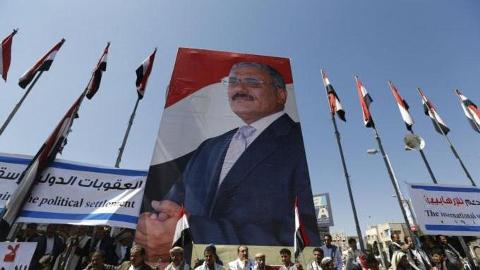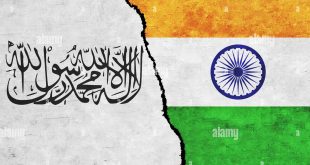Former president’s party and Houthi rebels pull out from cabinet after UN slapped sanctions on three leaders. Yemen’s new government has been sworn in amid opposition from the ruling General People’s Congress (GPC) and the Houthi rebels who said that they would not back a confidence vote.
President Abd-Rabu Mansour Hadi presided over the swearing in, which was followed by a meeting of his new Cabinet, Al Jazeera’s Hashem Ahelbara reported from the capital Sanaa on Sunday.
He also said that most of the ministers allied with the former president Ali Abdullah Saleh were present at the swearing in and the meeting.
Our correspondent, however, said that the latest move by Hadi is unlikely to end the political divide in the country, adding that the Houthi rebels are determined to stay in the capital.
The GPC said it was not consulted in forming the long-awaited cabinet and urged party nominees to turn down their assigned ministries.
Houthi rebels also rejected the newly formed cabinet, demanding instead a reshuffle to dismiss members they consider unqualified or corrupt.
The cabinet, formed on Friday and welcomed by Washington, “is in violation of the peace agreement… and a clear obstruction to the political process in favour of private and narrow interests,” the rebels said in a statement on Saturday.
The GPC’s central committee also dismissed President Abdrabuh Mansour Hadi from his posts as vice president and secretary general of the party, accusing him of soliciting the UN sanctions against Saleh and two Shia rebel commanders.
Al Jazeera’s Ahelbarra described the move boycott as “a major setback for the political process in the country.”
“It is also a signal by the deposed leader, Ali Abdullah Saleh, that he remains crucial to peace and stability in Yemen.” he said.
“He is determined to show to the international community that he still has power,” he said.
Early on Saturday, Saleh rejected the UN Security Council sanctions imposed on him for obstructing peace.
UN sanctions;
Saleh also said he was willing to give up the immunity he earned when he stepped down in February 2012 following nationwide protests, and expressed readiness to face Yemeni justice.
“Find any (corruption) files, refer them to justice and lift the immunity. I will be there to appear in court,” he said.
Saleh is seen as the main backer of Houthi rebels who seized Sanaa in September unopposed, and have since expanded their control to coastal areas and regions south of Sanaa.
Some army troops that remain loyal to Saleh are accused of aiding the rebels. Saleh urged GPC members to “stand by the military and security forces.”
On Friday, Saleh supporters protested alongside rebels in Sanaa denouncing the then planned sanctions that also hit two rebel commanders.
The GPC said the UN decision to penalise Saleh for obstructing the political process is “strange,” insisting that the former strongman “stepped down peacefully” for the sake of political compromise. (Al Jazeera and agencies)
 Afghanistan Times
Afghanistan Times




